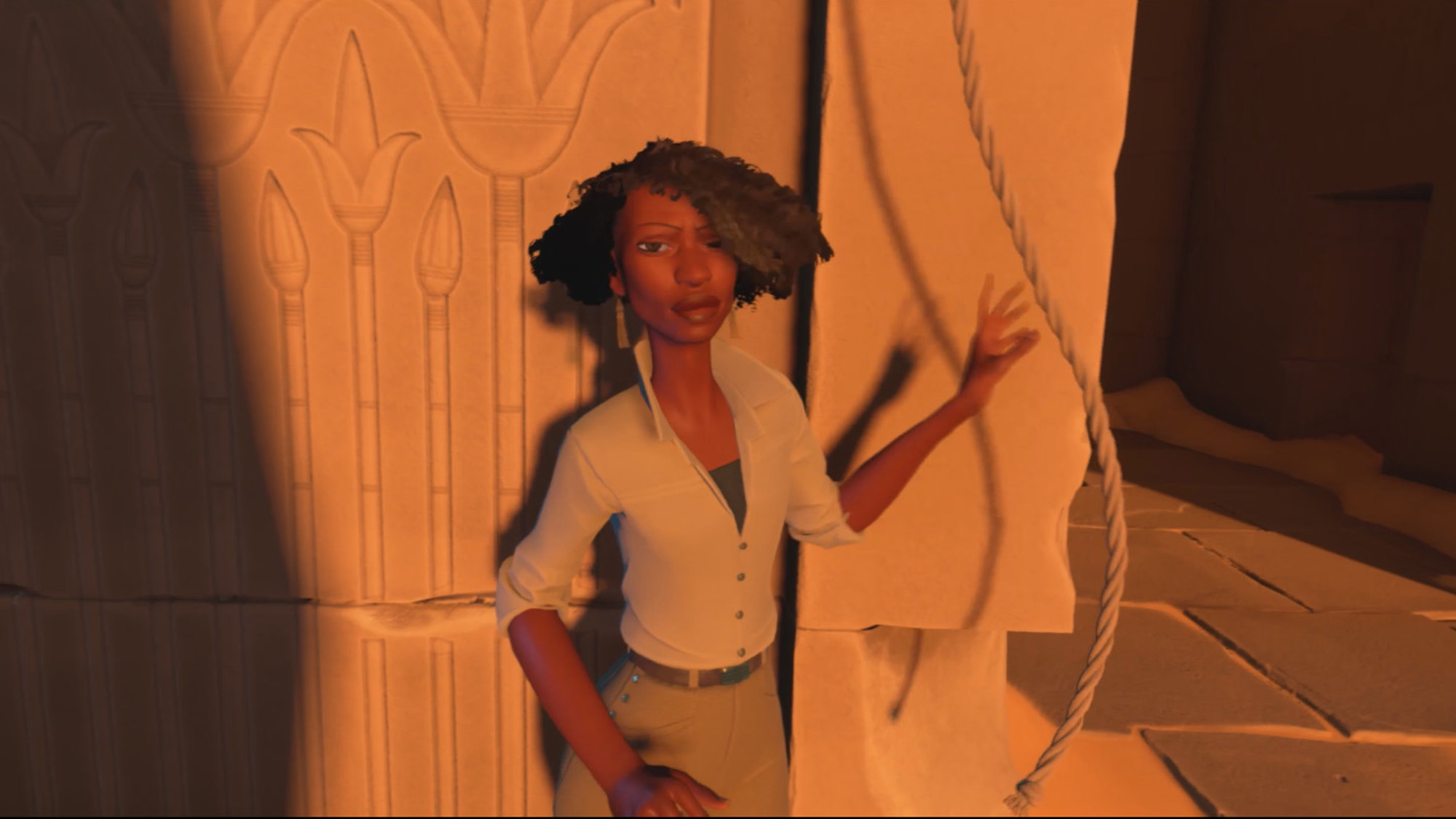How gaming and colonization are intertwined
The Monomyth has overstayed its welcome in gaming

When you experience a single ideology and a single methodology your whole life, it’s difficult to remove yourself from that and see other points of views. Especially when they benefit you at the expense of suppressing and othering others.
Gaming, like any other media, is a creative force that allows others to convey information in an interactive medium. It also, like any other media, is built up by bigotry down to its foundation. Storytelling, environments, and characters all are interwoven with traits of white supremacy, because those that most often create and are allowed to showcase those creations enforce white supremacy.
If gaming as a medium is to become more inclusive and equitable, then those creating for that medium need to challenge the belief systems that they are pouring into their art form. And those most marginalized must be allowed to create for this medium in ways that are wholly unique and separate from the current power structure.
During the It's Not About You: Beyond the Hero's Journey talk at Game Devs of Color Expo 2022, narrative writer and designer Jen Coster addressed these concerns, breaking down how The Hero's Journey perpetuates the worst of imperialism and "Western Exceptionalism."
How gaming and colonization are intertwined: The Hero’s Journey

Let’s look at one of the most ubiquitous storytelling methods in gaming: The Hero’s Journey or also known as the monomyth. It was created by Joseph Campbell, who claimed that it could be found in stories around the world, which grossly oversimplifies global cultural mythology.
The monomyth has since been spread as a universal doctrine for proper storytelling and essentially colonized the storytelling landscape and media in the west, pushing out narratives and storytelling styles that conflict with it. It represents many of the cornerstones of white supremacy: the concept of a lone, almost always a white male but sometimes a white woman, who fits neatly in the gender binary — white protagonism.
Just as how white supremacy uses violence to treat other races and cultures as mere resources and then abandon them, the monomyth in gaming requires the player to use violence to solve the main conflict of the story while treating NPCs as mere tools to be used and then abandoned once the conflict ends. It rejects community and collectivism to purport the hero as the lone savior, and treats this as the only valid method to resolve conflict.
Get daily insight, inspiration and deals in your inbox
Sign up for breaking news, reviews, opinion, top tech deals, and more.
How gaming and colonization are intertwined: Using race and culture as window dressing
Having diverse stories, characters, and gameplay mechanics is rare enough in gaming. But how many of those are developed by wholly white teams, studios, and companies? It’s entirely too often that we see a game with a protagonist of color and those behind it have nothing to do with that culture or race.
And no matter how much research is done, it’s simply not possible to fully examine your own biases and come to understand cultures that are not your own. You will use research that comes from the colonizer's point of view and therefore inherently inaccurate and full of bigotry. And when that research fails to extrapolate on certain cultural practices, history, and the people themselves, you will inevitably rely on stereotypes to fill in those knowledge gaps or choose to represent that culture as lacking in depth at all.
When you fail to see people of color as nothing more than an aesthetic or exotic locale or shallow fantasy to play around in, and therefore fail to include people of color in the process from the beginning, then you do a disservice to our lived-in experiences, whether it ends up being shallow or outright offensive. If in all aspects of game development and the environment around it are white, then what authenticity can you truly bring to the table when you use other races and cultures in your titles?
What is “decolonizing” and how do we go about it?

Decolonizing in reference to gaming means relinquishing the hold that white supremacy has not only on the process of developing games, but on the gaming industry as a whole.
It is a difficult process and in order to decolonize gaming, the first step is to explicitly examine the deliberate choices that are made surrounding the creation of a game and those involved in the process of it. You must analyze not only the story but characters and gameplay mechanics, who is designing and making those creative choices, and who is in charge of hiring those involved in those choices.
When it comes to the development of a game itself, understand that The Hero’s Journey is only one of many ways to tell a story and that it’s not required to use it as a basis to develop characters and a gameplay system. NPCs have agency and stories just like the protagonist and examining those factors means that you can better incorporate collectivism and community into your game.
It’s also important to ask when you want to use a culture or country that is outside your expertise: is this my story to tell? More often than not, it simply isn’t. This can sometimes mean letting go of that culture or environment if it doesn’t add anything to the main themes and gameplay.
And if you can’t, who do you need to bring on board to ensure that it’s not simply window dressing but handled with the respect and depth that it deserves? In short, people of color must be able to tell our own stories, not have the ones in power do it for us.
Having people of color in positions of power and influence within a development team and company is absolutely vital. You can bring in sensitivity readers and cultural consultants all you want but if the culture of the company doesn’t allow for those changes to be enacted, or it actively stifles the voices of the marginalized then it means nothing.
However, the indie scene, while still heavily in favor of whiteness, has seen many developers of color make incredible strides in this endeavor. The Game Devs of Color Expo showcases many of these gaming projects with developers able to tell their own stories free from much of the colonized trappings of gaming creations.
And beyond are even more developers changing the landscape of game development. As such, we can slowly see an industry that is capable of and is already improving itself.

Named by the CTA as a CES 2023 Media Trailblazer, Allisa is a Computing Staff Writer who covers breaking news and rumors in the computing industry, as well as reviews, hands-on previews, featured articles, and the latest deals and trends. In her spare time you can find her chatting it up on her two podcasts, Megaten Marathon and Combo Chain, as well as playing any JRPGs she can get her hands on.